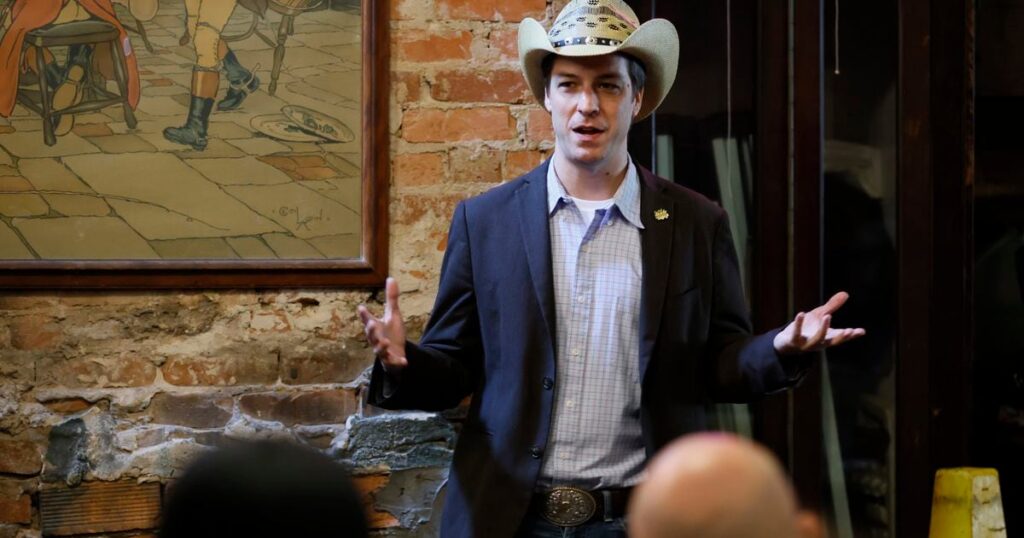But is Oliver’s candidacy more likely to undermine the election results for President Joe Biden or former President Donald Trump?
“In the current climate, that’s a hard question to answer,” said David Chastain, former executive director of the Georgia Libertarian Party. “Are people for or against something? Are they for or against people?”
Kerwin Swint, dean of the School of Government and International Studies at Kennesaw State University, said Libertarian Party candidates have historically taken votes away from Republicans.
Still, the Libertarian Party doesn’t have many supporters: Only 1.2% of Georgia voters chose the party in 2020, and the party received less than 2.6% of the vote in all 50 states.
“Libertarians will disrupt elections in Georgia, and in most places,” Swint said. Because Georgia law requires candidates to receive a majority of the vote, “they’ll force runoff elections and never win in a direct election,” he said.
“Their main influence is to elect Democrats,” he said.
In the US Senate race between Republican incumbent David Perdue and Democrat Jon Ossoff, Perdue won 49.7% to 47.9% of the vote, but Libertarian candidate Shane Hazel received 2.3% of the vote, sending the race to a runoff where Ossoff won.
But winning the White House isn’t Oliver’s only goal.
“We can get people to vote in states across the country, including Georgia,” he said, adding that the Libertarian Party also runs in local elections and would gain name recognition by backing a third-party presidential candidate.
Chastain, who served as campaign finance director for former Rep. Bob Barr’s Libertarian Party in 2008, said third parties can be successful if their policy agendas are incorporated into the Democratic and Republican policy platforms.
“Someone starts talking about something and all of a sudden a major political party says, ‘This isn’t as crazy as we thought. Let’s look into it,'” he said, citing the decriminalization of cannabinoid oil as an example.
But in reality, Swint says, that rarely happens.
“Some of the Libertarian Party’s policies are conservative and lean Republican. Others are left-leaning and lean Democratic. It’s a mix of policy positions,” he said. “That’s one of the reasons the Libertarian Party has a hard time getting attention. People don’t really know what to make of the Libertarian Party.”
Polls show that both Biden and Trump are unpopular candidates, and even in these circumstances, Swint said it’s rare for people to vote for a third party.
“The data shows it’s more lip service than action,” he said. “Voters are either holding their noses and voting for the candidate they dislike the least, or they’re not going to vote at all.”
Brian Robinson, a spokesman for Nathan Deal’s time as governor, said he was more concerned about the effect that Robert F. Kennedy Jr., who is running as an independent, might have on the Republicans’ chances of victory than he was about Oliver, who is unknown to most voters.
“Yes, he’s been on the presidential ticket in recent years, but nobody remembers that,” Robinson said of Oliver. “He has no advertising dollars to his name, and that’s crucial. The vast majority of Georgians will never know they’re on the presidential ticket.”
In theory, Kennedy “could win many more votes than third parties have historically gotten,” Robinson said.
“Voters who dislike both parties will be decisive in this election. There are significant numbers of voters who don’t like either Trump or Biden, given that approval ratings for both parties are in the 30 percent range,” he said. “If they dislike both parties so much, they should just vote for a harmless third party they don’t know.”


